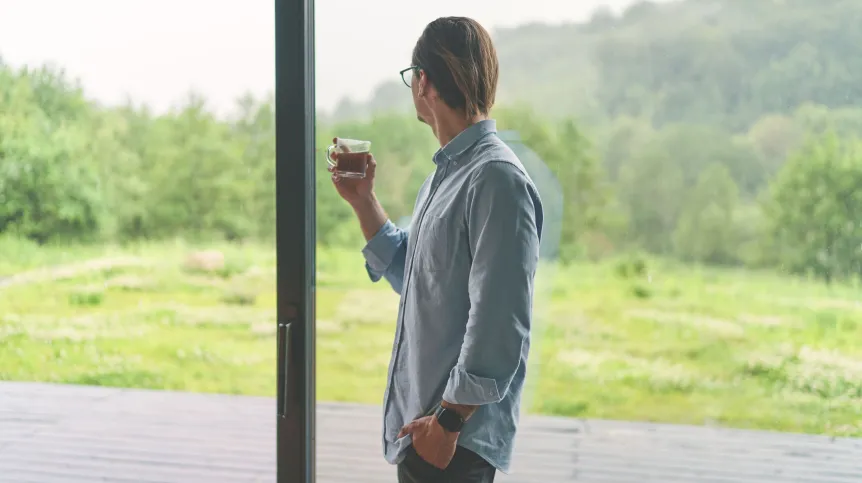
Lockdowns have made millions of people around the world realize how important contact with nature is - even if it is just admiring nature outside the window. Researchers tracked internet trends in searches for terms related to nature observation and summarized research on how greenery around the house affects well-being.
During the lockdowns related to the COVID-19 pandemic, people around the world have had significantly limited ways to relax and spend their free time. As a result, however, lockdowns have helped to investigate how important greenery in the immediate vicinity of the house is for people.
In a new publication in Ecology and Society, researchers analysed global trends in online searching for terms related to the observation of plants and animals. These included inquiries about bird-watching equipment, feeders, apps for identifying birds, butterflies and plant species (e.g. birdNET, iNaturalist), as well as entries related to the cultivation of house or garden plants. During the lockdown, such searches experienced a real boom around the world.
People intuitively turned to observing nature - even if they could only do it near their homes.
Meanwhile, many studies confirm that this is a good idea, as turning to nature reduces stress. And the greenery outside the window has a positive effect on well-being.
Co-author of the study, psychologist Professor Edward Nęcka from the Jagiellonian University explains that contact with nature reduces social anxiety and helps divert attention from the threats associated with life in society, and physical activity in nature can improve well-being.
Dr. Magdalena Lenda from the Institute of Nature Conservation of the Polish Academy of Sciences says that the lockdown has shown how important and universal it is for various cultures to derive peace and joy from the nature that we have at our fingertips.
This is important on a daily basis. 'There are about 10 million people in the world who cannot leave home due to disability. In addition, there are people who are temporarily immobilized (e.g. with a broken leg), or who take care of dependent family members. Such people, if they live in tenement houses or blocks of flats without elevators, become +prisoners of the 4th floor+. For them, going for a walk in a park even a few hundred meters away from home is a great expedition. Their only contact with nature is the nature they see from the window, balcony or in the garden. And this - we remind - affects the quality of their life,’ Dr. Lenda says.
A number of conclusions can be drawn from this. For example, to improve the mental state of people who do not leave home, it is worth getting them interested in observing nature. Another issue is that city planning decisions should take into account what people see outside their windows all day long. And people who are looking for a new apartment should be reminded of the importance of greenery is in the immediate vicinity of the house.
Professor Edward Nęcka points out that the human species had evolved in the African savannah for thousands of years. And the change in living conditions occurred much faster than genetic changes. Hence - as the researcher interprets - contact with nature, even by staying in open spaces or admiring landscapes, often gives us a sense of security. This is close to what provided respite for our ancestors in the conditions that shaped them.
'The myth of paradise, a return to Eden, and wild nature that is paradise has survived in the traditions of various cultures. Contact with nature is good for people. If you feel bad or are afraid of the future, allow yourself to return to nature, a substitute for paradise,’ says Professor Nęcka.
Dr. Lenda explains that there are two main trends in the approach to greenery in cities: land sharing and land sparing.
'Land sharing' assumes that in close proximity to humans, there should be a lot of green areas accessible to wildlife. According to this philosophy, home gardens and greenery between houses should be common in cities, so that animals and plants can settle there (a good example are the districts of Warsaw designed in the times of the Polish People's Republic).
In turn, 'land sparing' involves compacting the area occupied by people to save more land for wildlife and creating huge parks and forests that can be used by both people and wildlife (the most striking example of this approach is New York, where the large Central Park is located in the middle of the asphalt jungle).
Dr. Lenda believes that the best solution is to combine these two approaches - the presence of both greenery near houses and large green areas in the city. However, the analyses of trends during the lockdown showed the real impact of land sharing on the well-being of residents.
PAP - Science in Poland, Ludwika Tomala
lt/ zan/ kap/
tr. RL













